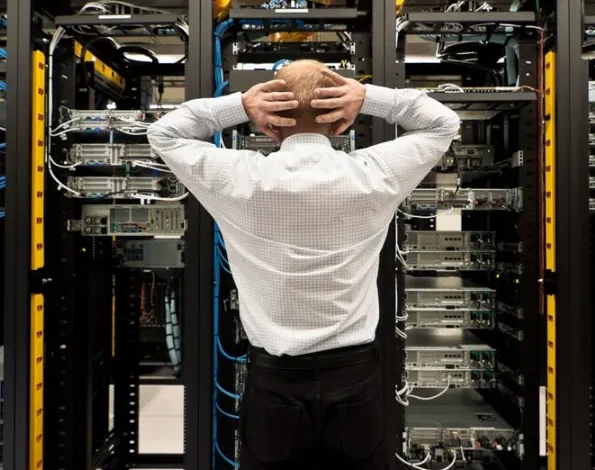How to Choose the Perfect Server for Your Business

Choosing the right server for your business is more than just a technical decision—it’s crucial for your overall growth strategy. A well-chosen server can impact everything from operating costs to how quickly you can scale. On the other hand, selecting the wrong server can lead to wasted resources and hinder your ability to adapt in a competitive landscape.
In this post, we’ll explore the different server types, key features, and factors to consider when making your decision. Whether you’re a small startup or a large enterprise, this guide will help you find the right fit for your business.
Understanding Your Business Needs
Before diving into the specifics of server types, it’s essential to understand your unique business needs. How do you plan to use the server? Is it for file storage, hosting applications, or managing databases? For example:
- Small businesses might only need basic storage or low-level processing.
- Medium-sized businesses typically require more scalability and performance.
- Large enterprises demand high-performance servers to handle complex workloads.
Identifying the type of data you will manage and your long-term goals will significantly influence your server choice.
Types of Servers
Your choice of server depends heavily on your business requirements. Let’s break down the options:
Dedicated Servers
Dedicated servers are the go-to solution for businesses that need full control and high security. These servers offer exceptional performance, ideal for handling large traffic volumes or sensitive data. You can fully customize both the hardware and software to meet specific needs. However, with this control comes a higher cost, making it better suited for larger businesses with a robust IT infrastructure.
Cloud Servers
Cloud servers are known for their flexibility and scalability. Managed by third-party providers, these servers are accessible remotely, offering seamless integration across multiple locations. They are a cost-effective option since you only pay for the resources you use. Cloud servers are a great choice for growing businesses that need flexibility but still require strong security measures.
Virtual Private Servers (VPS)
A VPS is a middle ground between dedicated servers and shared hosting. With a VPS, you get a private environment with dedicated resources while sharing the physical server with other businesses. This offers better performance and security than shared hosting but at a lower cost than a dedicated server. VPS is a solid choice for medium-sized businesses needing more control without the hefty price tag of a dedicated server.
On-Premises Servers vs. Colocation
When considering on-premises servers, you gain complete control over your hardware and security measures. However, these servers come with the responsibility of constant maintenance and management. On the other hand, colocation involves hosting your servers in a professional data center, where you get better security, power backups, and dedicated support services.
On-premises servers are a good fit for businesses with dedicated IT teams, while colocation is more suitable for those seeking a scalable and secure environment without the management overhead.
Key Factors to Consider When Selecting a Server
Choosing the right server is not a one-size-fits-all decision. Here are the key elements to evaluate:
Performance & Processing Power
A server’s CPU, RAM, and storage directly impact its efficiency. The workload of your business will dictate what specifications are required. SSDs are faster than HDDs and will improve overall performance, while more RAM allows for smoother multitasking. Ensure that your server can handle current demands and future growth.
Scalability
Your business will evolve, and your server should be able to scale with it. Servers that can easily accommodate hardware upgrades or integrate with cloud services will allow for smooth growth. Cloud servers, in particular, offer outstanding scalability, allowing you to expand as needed.
Security Features
Data protection should always be a priority. Look for servers with built-in security features such as firewalls, encryption, and multi-layer authentication. Regular backups and updates are also essential to ensure that your business is always protected from cyber threats.
Reliability & Uptime
A server is only as good as its uptime. You want a provider that guarantees high availability and minimizes downtime. Check for redundancy measures that ensure your data is accessible at all times, even in the event of a failure.
Budget & ROI
While it’s tempting to focus on upfront costs, consider the long-term expenses when selecting a server. A cheap server may initially save money but could cost more in maintenance and downtime. Invest in quality hardware to avoid costly repairs down the line, and remember that reliability is key to long-term success.
Server Brands and Hardware Recommendations
When investing in a server, it’s crucial to select enterprise-grade hardware from reputable brands. Companies like Hewlett Packard Enterprise (HPE), Dell, and Lenovo offer reliable and robust servers that come with solid warranties and support. Avoid consumer-grade hardware for business use, as it may not provide the performance and security needed for critical operations.
To Buy or Rent a Server?
One of the first decisions you’ll need to make is whether to purchase or rent your server. Buying a server provides full control over your hardware and software but comes with higher upfront costs. Renting a server, on the other hand, lowers initial investments and gives you the flexibility to adjust your resources as your business grows. Renting is often ideal for businesses that need scalability without the long-term commitment of purchasing.
Choosing the Right Server Provider
The provider you choose can make or break your server experience. Look for a reputable provider that offers excellent customer support, reliable warranties, and customizations tailored to your business needs. Ensure the provider offers solutions that match your technical requirements and can assist with any troubleshooting or scaling issues that may arise.
Final Checklist Before Making a Decision
To make an informed decision, follow this checklist:
- Identify your business needs: Understand what you need from your server in terms of storage, processing power, and security.
- Select the right server type: Choose between dedicated servers, cloud servers, VPS, or colocation based on your requirements.
- Ensure scalability: Make sure your server can grow with your business.
- Prioritize security: Look for servers with strong encryption and data protection.
- Compare providers: Choose a provider with reliable support and customization options.
Conclusion
Selecting the right server is essential for the long-term success of your business. It directly impacts everything from security to productivity and growth. Whether you choose a dedicated server for maximum control, a cloud server for flexibility, or a VPS for a cost-effective solution, the key is to understand your business’s specific needs and choose accordingly.
Investing time in evaluating your options will pay off in increased efficiency, improved performance, and greater scalability. Ultimately, the right server will not only meet your current needs but also help future-proof your business.







